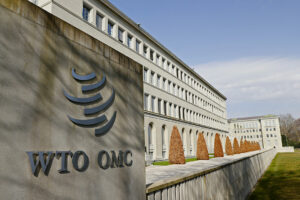THE Department of Trade and Industry (DTI) said it is concerned about the potential for increased trade costs brought about by disruptions to long-established multilateral trading systems.
The Philippines backs an “open, rules-based multilateral trading system that upholds fairness, transparency, and inclusivity — crucial to building resilient and inclusive economies,” Trade Secretary Ma. Cristina A. Roque said in a statement on Monday.
“We remain concerned with actions that jeopardize global supply chains, raise trade costs, and erode confidence in the multilateral system,” she added.
At the Asia-Pacific Economic Cooperation (APEC) trade ministers’ meeting on May 15, Ms. Roque said that although emerging technologies hold transformative potential, stronger regional cooperation is needed to address digital challenges.
“Artificial intelligence and emerging technologies offer an unprecedented opportunity to redefine global trade. It is imperative that we create an empowering digital environment, one that is secure, inclusive, and prosperous,” she said.
Ms. Roque cited the need to reform the World Trade Organization’s (WTO) dispute settlement mechanism and to advance agriculture and fisheries subsidies.
“The WTO must remain responsive to evolving global trade realities,” she said.
“It is crucial to engage with a wide range of stakeholders, including businesses, civil society, and the scientific community, to ensure that trade policies are informed by the latest knowledge and best practices,” she added.
In a separate statement, the DTI said it participated in the Association of Southeast Asian Nations (ASEAN)-APEC Ministerial Caucus, where the ministers discussed “regional and national responses to global economic challenges.”
“More than ever, ASEAN must stand united as a stabilizing force and proactive partner in shaping the evolving global order,” Ms. Roque said.
She said the Philippines supports the expansion of the Regional Comprehensive Economic Partnership as the region pursues a “more resilient, competitive, and inclusive ASEAN economy.” — Justine Irish D. Tabile
